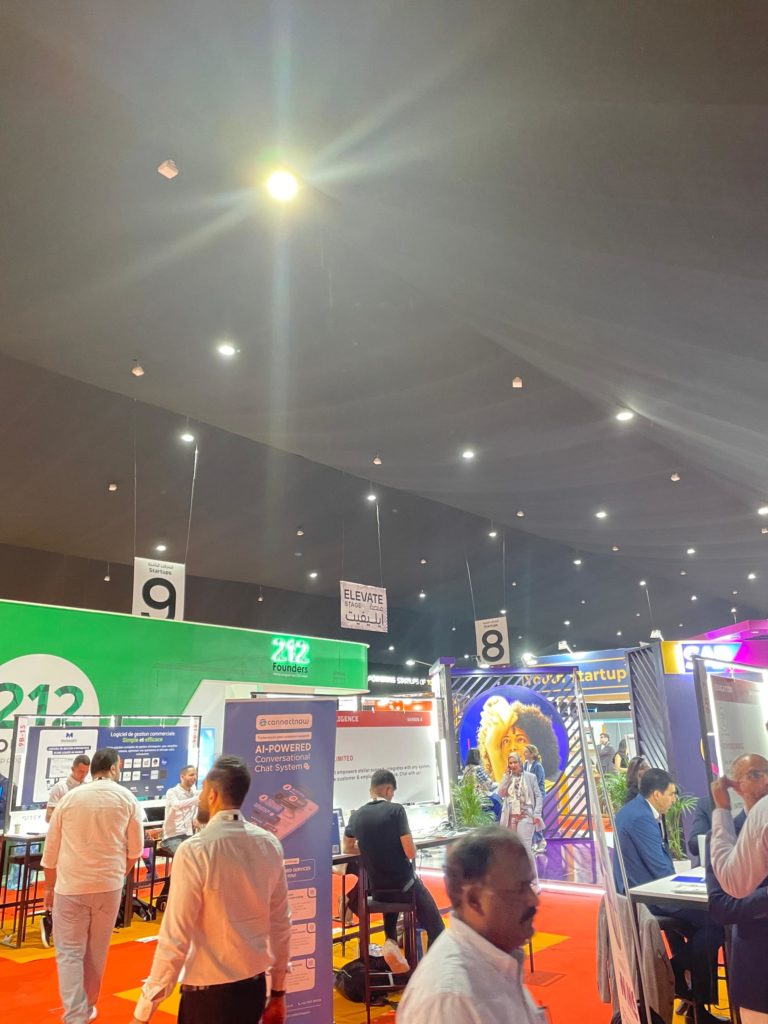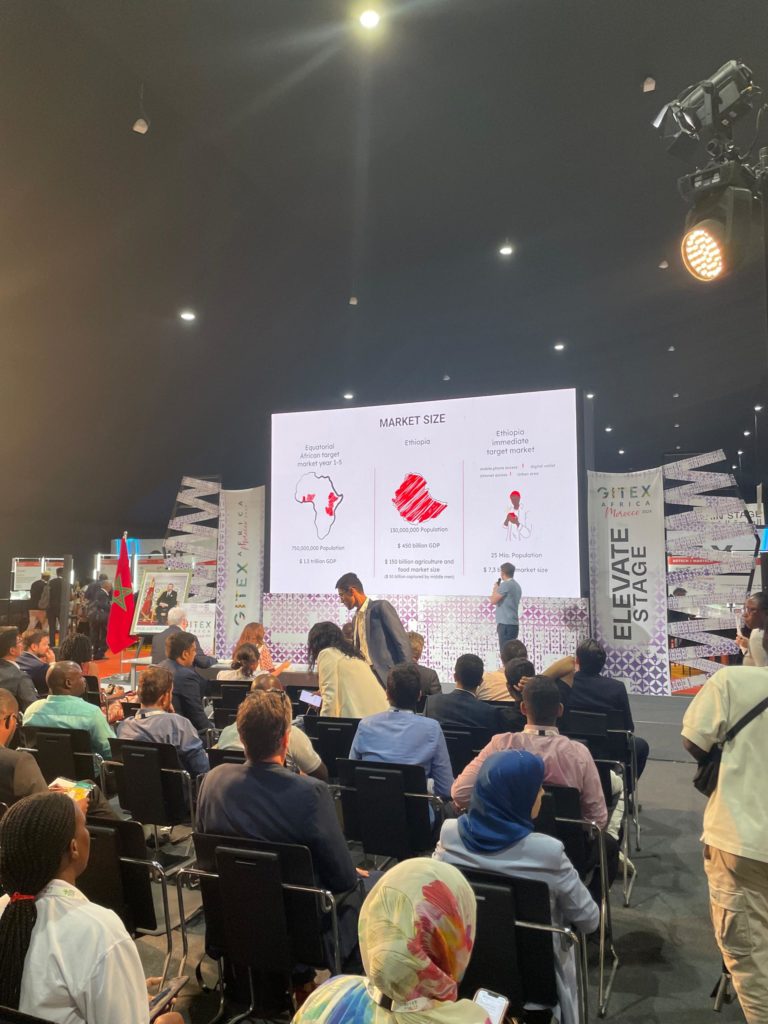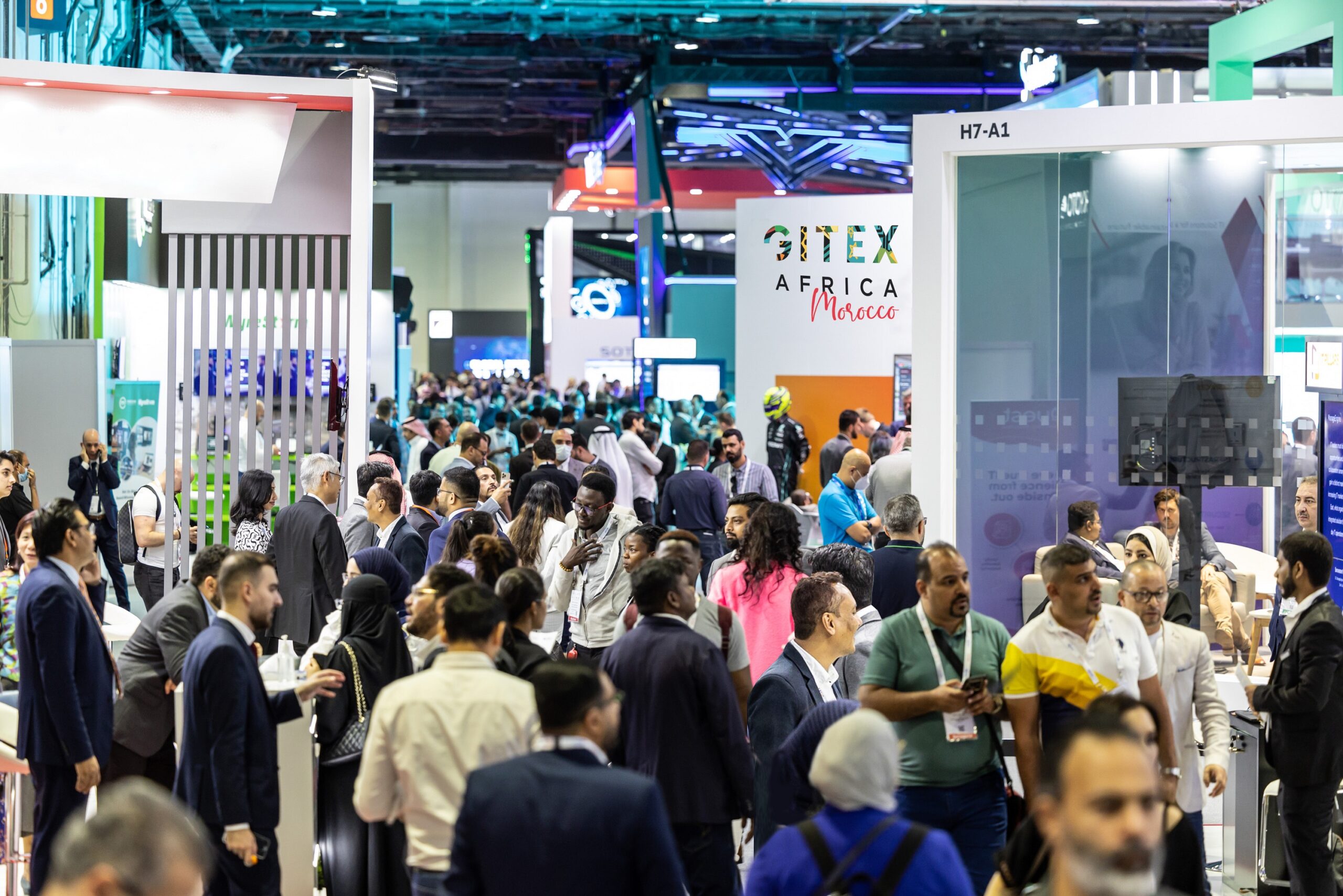Despite the 27-degree Marrakesh heat, thousands of people in impressive suits descended on the Boulevard Al Yarmouk, causing pedestrian traffic. GITEX, the biggest African technology and startup showcase, began today.
In the world of technology, tags like “biggest” can seem like meaningless superlatives, but the size of the venue and the crowd on day one suggest GITEX is spot-on with its claim.
“This is twice the size of last year’s venue,” one person who attended 2023’s event said, referring to the huge tents holding hundreds of exhibitors. 2023 drew a 25,000-strong crowd and the organisers plan to double that number this week. On the strength of the number of GITEX buses waiting to ferry attendees to the venue from all the major hotels in the city: mission accomplished. The name tags that show where participants are from is also a roll call of every African country.
The size of the exhibition hall is dizzying—GITEX is historically a tech exhibition—and it is easy to clock your 10,000 daily steps by walking around. Some of the world’s most recognisable companies are here: Huawei, PwC, Visa, and McKinsey. There is also a horde of startups in foodtech, healthtech, mobility, fintech and cleantech.

Across from TechCabal’s booth, there’s Social Convert, an early-stage startup that can transform your social media engagement into tangible earnings. There’s Focus Messenger, which files organisational messages by topic and puts them into folders. When you have over 30,000 people in one venue, the advertising opportunity is massive.
In the bathroom, a sticker on the tap tells me Africa does not have a native social media platform and asks me to sign up. There are several interesting startups here that want to show and tell you their unique thinking about several problems across the continent.
And as proof that you’re at an event that knows what’s what, you can’t escape artificial intelligence (AI), the global hot topic of 2024. You can’t avoid AI at GITEX Africa 2024, nor should you want to. Among the eight stages for a diverse range of panel discussions, artificial intelligence is one of them.
“Are you familiar with the figure $15.7 trillion?” A speaker on the stage asks the audience. It represents the value AI is expected to have on global GDP. The crowd looks engaged; this is supposed to be where technology is going.
At the Elevate stage, ten startups are trying to convince a panel to award them the $100,000 prize sponsored by Tamwilcom. Many of the ideas sound like good old financial technology, but most of the speakers manage to squeeze in a mention or two of artificial intelligence. “They’re trying to avoid the fintech label,” one person listening in on the pitch competition tells me.

At the Future of Fintech stage, there’s a panel going on in French with speakers from Niger and the DRC. Until I learn French, not a lot to report there!
As I worked my way to the main stage, I rubbed shoulders with Aziz Akhannouch, the prime minister of Morocco—I couldn’t stop to chat—and some other government figures. In the unlikely event, you miss the sign that says this event is under the “high patronage of His Majesty King Mohammed VI,” prepare to see his pictures on all the stages. It’s a credit to the government that they can host an event of this size and scale.
As I resist the temptation to buy a brand-new SUV at the exhibition smack in the middle of the hall, I make a note to check out the Future of Health stage. If I can sneak into the investor lounge unnoticed, you’ll be the first to know.















